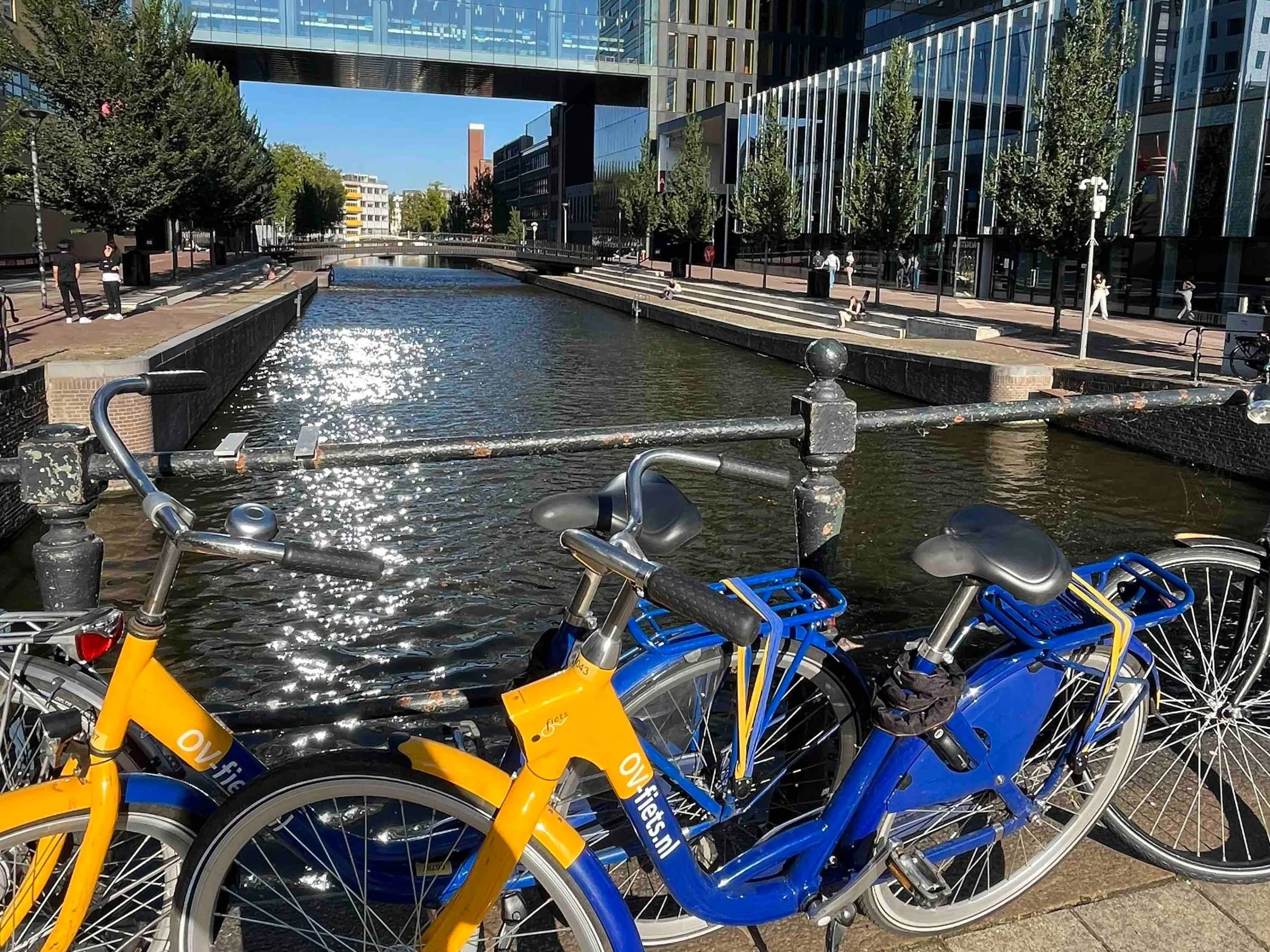Mobility Moshpit 19
✨ Hello pioneering minds!
The Lab of Thought wants to challenge the way we think and act about mobility and the spaces we live in. We love to question the narratives that have shaped our motonormative mindset and explore alternative ways of seeing, thinking, and doing. Curious? Let's go!
CYCLING RESEARCH BOARD – JOIN THE 2025 ANNUAL MEETING
Think campfire vibes, biking in the sun, climbing on desks, and playing with stickers—yes, we do all that and still manage to stay academic and create real-world impact!
This year is the 9th edition of CRBAM 2025, hosted by the Urban Cycling Institute and the University of Amsterdam! This isn’t your typical conference: it is a gathering of interdisciplinary minds using cycling to crack open the bigger questions of mobility, inclusion, and social change. Whether you’re an early-stage researcher or just an open, curious thinker, CRBAM is your space to share research, co-create, and collaborate in a constructive and creative environment.
When & Where? 10-12 September 2025 The Brug, University of Amsterdam, Roeterseiland Campus, Amsterdam, The Netherlands
Expect: A mosh pit of disciplines, researchers from across the globe, and ideas that spark change. Will you be part of it? To learn more and register for the event, click here.
EUROPE IS GOING 30
Momentum for safer, healthier streets is growing across Europe. Greece has just become the third country—after Spain and Wales—to adopt 30 km/h as the national default speed limit in urban areas, starting in September 2025. The law will apply automatically to most urban streets, following a model that already reduced traffic injuries and deaths in Spain.
Meanwhile, German cities are pushing the boundaries even further. Places like Dortmund and Freiburg are now expanding 30 km/h limits to main roads, not just for safety but also to combat traffic noise, an often overlooked but serious public health issue. Lower speeds reduce harmful noise levels and their effects on sleep, mental health, and heart disease.
And in Italy, new data from Bologna’s “Città 30” policy shows just how effective these changes can be. Based on 135,000 real trips, the number of harsh braking events fell by 58%, and pollutant emissions dropped significantly, without meaningful increases in travel time.
From noise reduction to cleaner air and safer streets, Europe’s shift to 30 km/h is proving to be a smart and scalable model for cities everywhere.
FROM MOTORWAY TO PLAYGROUND: AMSTERDAM SHOWS WHAT’S POSSIBLE
What happens when you close one of the busiest highways in the Netherlands, not for repairs, but for a celebration? Many feared gridlock when Amsterdam announced it would shut down parts of its A10 ring road for a festival marking the city’s 750th anniversary. But the result was anything but chaos.
Last weekend, 250,000 people walked, danced, and explored the A10 on foot, turning a space usually dominated by cars into a joyful, car-free celebration. None of the feared disruptions came true: emergency lanes remained clear, public transport held up with smart rerouting, and no major incidents were reported.
The event sparked international attention and gave a glimpse of what’s possible when cities dare to reimagine space. A tiny forest of 750 trees was installed, vulnerable groups received extra mobility support, and the city was quieter, cleaner, and prouder for a day.
Amsterdam didn’t just host a party: it staged a bold experiment in civic space. The question now is: what if more cities followed suit, and started asking what roadways could become, when they’re not ruled by cars?
Check out the full celebration agenda on the official website.
Thanks for reading!
If you're not already subscribed, click here.



